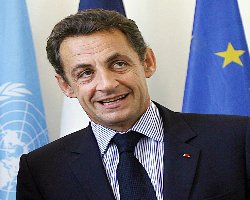A controversial ban on face veils has come into force in France, meaning anyone wearing the Muslim Niqab or Burqa in public will face a fine of up to $216 and a citizenship course.
A number of Muslims are urging women to defy the ban, including a property dealer who is offering to sell a building worth millions in order to fund his campaign.
Rachid Nekkaz is urging people to go to Notre Dame Cathedral in Paris, the capital, for a silent prayer against the ban on Monday.
"I am calling on all free women who so wish, to wear the veil in the street and engage in civil disobedience," he said.
A young woman from Avignon in the country's south has already broken the ban by wearing a Niqab in public.
"I had been invited to take part in a television program which I am going for and I find that today is April 11, the first day of the application of the ban," Kenza Drider, 32, told reporters before boarding a train for Paris.
"This law infringes my European rights, I cannot but defend them that is to say my freedom to come and go and my religious freedom," the voluntary worker said.
Her husband Allal added: "According to this law, my wife would have to remain cloistered at home. Do you find that normal? She has been wearing a veil for 13 years and it has not shocked anyone".
It is the first European country to bring in a ban on face-covering veils. Neighboring Belgium has passed a similar bill but is yet to enforce it, while in the Netherlands, far-right leaders have proposed a ban.
Rights groups have accused the government of Nicolas Sarkozy, the president, of attempting to stir up racial tensions and of targeting one of France's most vulnerable minorities.
Other groups have also accused Sarkozy of enforcing the law in order to try and win votes, Tim Friend, Al Jazeera's correspondent in Paris, said.
"There's an accusation against Sarkozy that he's trying to win back votes by introducing in this law in the face of increased support for anti-immigration parties in France.
"Many feel that this is not necessarily strictly about emphasizing France's secular traditions but more a vote-winning exercise by Sarkozy, in other words, pandering to people's prejudices," he said.
How the law will be enforced has also come under question, since police officers will not be allowed to remove a woman's face covering.
In a guide sent out last week, police were told that the ban does not apply inside private cars as such cases can be dealt with under road safety rules.
Officers will be able to take anyone refusing to lift the veil to a police station, where they would be threatened with fines.
Those who are 'found guilty of forcing' women to wear the face veil will also be prosecuted, facing a fine of up to $43,400.
The timing is all the more sensitive after UMP, the French ruling party, called a debate on the place of Islam in France. Some say that this move risks stigmatizing a portion of the population.
French police arrested 59 people on Saturday who turned up for a banned protest over the veil ban, one of them on arrival in France from Britain, according to a police spokesman.
PHOTO CAPTION
French President Nicolas Sarkozy
Source: Aljazeera.net


 Home
Home Discover Islam
Discover Islam Quran Recitations
Quran Recitations Lectures
Lectures
 Fatwa
Fatwa Articles
Articles Fiqh
Fiqh E-Books
E-Books Boys & Girls
Boys & Girls  Articles
Articles










